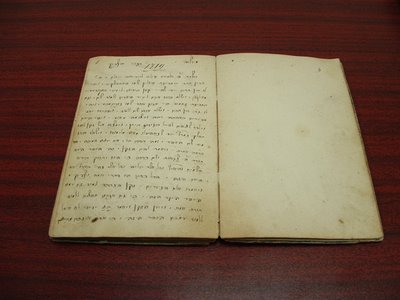Rabbeinu Yonah on Accepting Truth
In a comment to this post, Barzilai wrote the following:
The Mishna in Avos says: Al taamin b'atzmcha, Do not be overly confident in yourself.
R. Yonah first explains that this is true in the area of actions, i.e., A righteous person who is careful in his observance of mitzvos and in refraining from avayros for many years should still not delude himself into believing that he is totally immune from sinning, because the yetzer hara does not give up the fight until a person is gone from this world.
He then adds that the Mishna's warning is applicable in another area as well. That is, in the arena of Emunah. He writes the following:
(translation by me, it may be somewhat imprecise but you'll get the gist of it)
While it seems to me that R. Yonah would certainly reject the way the Rambam's dictum is invoked by many people today, he also is clearly not totally rejecting it either. He does not condemn R. Meir for studying under Elisha. R. Yonah's concern seems to be, how can a person be absolutely sure that the idea that he is about to accept is actually a "truth". Relying on one's own intellect in this regard is faulty because who is to say that he has never been fooled.
In truth, this concern is voiced by at least one of the other major Rishonim.
Any guesses on which Rishon is being quoted?
If you guessed Rambam.... you are correct!
Clearly the Rambam didn't advocate a total pursuit of the truth by every individual relaying solely on one's own intellect as the only check against error. The Rambam did believe that he himself had the ability to do this - and that's what he is saying in his famous quote. The Rambam selectively quoted the sources that he believed to be true. Now when presenting it to the reader as a finished product, he implores the reader not to question his judgment but rather to accept the what the Rambam himself has already determined to be the truth, regardless of it's source. I don't believe that the Rambam meant for every person to go off on his own search for truth without any checks.
So in short, what it boils down to is - He could say it, we can't.
See Rabbeinu Yonah on Avos 2:4 D'H Ahl Taamin B'atzm'choh. He says precisely the opposite of the oft quoted Rambam.So last night I looked it up and this is what I found:
The Mishna in Avos says: Al taamin b'atzmcha, Do not be overly confident in yourself.
R. Yonah first explains that this is true in the area of actions, i.e., A righteous person who is careful in his observance of mitzvos and in refraining from avayros for many years should still not delude himself into believing that he is totally immune from sinning, because the yetzer hara does not give up the fight until a person is gone from this world.
He then adds that the Mishna's warning is applicable in another area as well. That is, in the arena of Emunah. He writes the following:
(translation by me, it may be somewhat imprecise but you'll get the gist of it)
We are warned against learning from heretics, and even from their true ideas because all contact with them is bad. It can lead one to believe ideas that are against our laws, because these ideas have the ability to draw at the heart. So do not be overly confident in yourself to say "I will learn from them and I will accept only the good but the bad I will reject". One should not rely on his own intellect as R. Meir did when he studied under Elisha the heretic, as we learn in Chagigah [15b] that it is said regarding R. Meir "He found a pomegranate, he ate the fruit and discarded the shell". But not all people are equal in their ability to do so.
While it seems to me that R. Yonah would certainly reject the way the Rambam's dictum is invoked by many people today, he also is clearly not totally rejecting it either. He does not condemn R. Meir for studying under Elisha. R. Yonah's concern seems to be, how can a person be absolutely sure that the idea that he is about to accept is actually a "truth". Relying on one's own intellect in this regard is faulty because who is to say that he has never been fooled.
In truth, this concern is voiced by at least one of the other major Rishonim.
ולא עבודה זרה בלבד הוא שאסור להיפנות אחריה במחשבה, אלא כל מחשבה שגורמת לו לאדם לעקור עיקר מעיקרי התורה-מוזהרין אנו שלא להעלותה על ליבנו, ולא נסיח דעתנו לכך ונחשוב ונימשך אחר הרהורי הלב: מפני שדעתו של אדם קצרה, ולא כל הדעות יכולות להשיג האמת על בורייו; ואם יימשך כל אדם אחר מחשבות ליבו, נמצא מחריב את העולם לפי קוצר דעתו
Any guesses on which Rishon is being quoted?
If you guessed Rambam.... you are correct!
Clearly the Rambam didn't advocate a total pursuit of the truth by every individual relaying solely on one's own intellect as the only check against error. The Rambam did believe that he himself had the ability to do this - and that's what he is saying in his famous quote. The Rambam selectively quoted the sources that he believed to be true. Now when presenting it to the reader as a finished product, he implores the reader not to question his judgment but rather to accept the what the Rambam himself has already determined to be the truth, regardless of it's source. I don't believe that the Rambam meant for every person to go off on his own search for truth without any checks.
So in short, what it boils down to is - He could say it, we can't.
Labels: accepting truth, Rabbeinu Yonah, Rambam, torah










